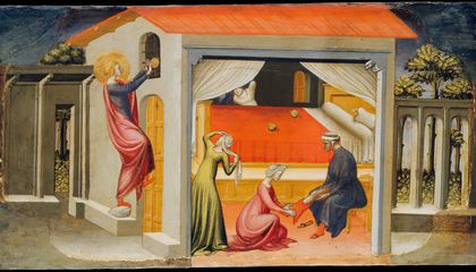 St. Nicholas providing the dowries, from an altarpiece in a monastery in Florence. The piece was painted between 1433-1435. St. Nicholas providing the dowries, from an altarpiece in a monastery in Florence. The piece was painted between 1433-1435. Sam Burnham, Curator Christmas has so many traditions that they often get lost in the crowd. Some of the ones that survive have origins that are forgotten or lost. So I was excited to learn that the orange I often found in my Christmas stocking is an old tradition with a story. I really agree with this Smithsonian article that this tradition, which has fallen into obscurity, needs to make a comeback. I’ve found just the way to make it a Southern tradition. Santa Claus is traced back to the 3rd Century Bishop of Myra, St. Nicholas. A story from church tradition relates that there were three woefully poor maidens and that St. Nicholas came one night and dropped three balls (or bags, or bars, or coins, depending on the storyteller) of gold through their window to serve as their dowries. Without this generosity these ladies would not find husbands as a dowry was a necessity in those days. That story is connected to the tradition of the Christmas orange that often appears in stockings on Christmas morning. The orange’s bright hue represents the glow of the gold. Hanging stockings for Santa became a tradition in the early 1800s and placing an orange in the stockings seems to have come into fashion about that same time. 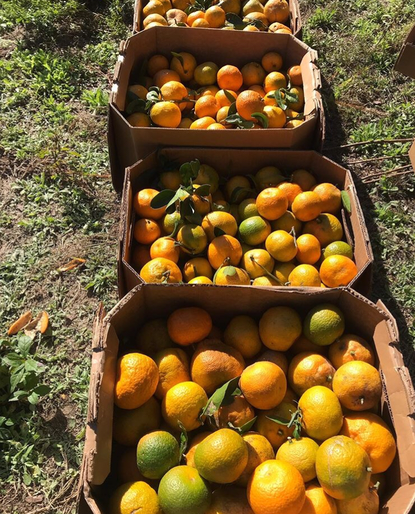 Souega Satsuma Harvest - Photo courtesy Brandon Chonko Souega Satsuma Harvest - Photo courtesy Brandon Chonko So what’s the verdict? That’s the best part. I hate California citrus because it looks like the fruit in a dollar store still life or maybe some of the wax fruit in a bowl on your grandmother’s table. It’s perfect, bright colored, without a blemish. It tastes like candy, such a juicy sweetness but without that tart sassiness we love in our citrus. Florida citrus looks like it woke up on the wrong side of the bed. You don’t dare mention it’s appearance for fear of retribution. Oh it has a delicious sweetness but it also has that sting of the citric acid, that slap in the mouth that makes you feel alive. These Georgia satsumas are like their Floridian cousins. They section like a clementine, meaning they peel easily and separate into individual sections. The beginning of each bite is that sweet juiciness that you expect but it has that same tart finish. It’s so odd to explain, that sweet and sour taste in the same fruit. But it’s so familiar, so beloved. It’s a piece of home. This Christmas, if you’re down in the Souega - Southeast Georgia - area, look up Grassroots Farms and get you some of these delicious satsumas while they last. Drop them in your loved ones’ stockings, if you can resist eating them immediately.
0 Comments
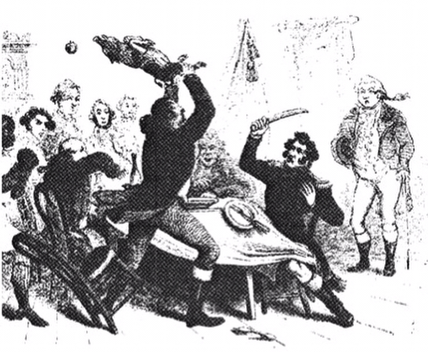 Typical Negotiations in Washington Typical Negotiations in Washington Sam Burnham, Curator @C_SamBurnham With the news that the disaster relief bill has stalled out in the Senate, we sit here scratching our heads. With much of South Georgia still struggling to recover from Hurricane Michael as well as tornadoes that damaged small towns and agricultural infrastructure, farmers were counting on federal disaster relief to make repairs, buy equipment, and to be eligible to secure loans for seed. And now planting season is upon us and those who lost last year’s crop to weather have lost this year’s crop before they even had a chance to plant it. Many may lose everything they own. As Washington becomes more and more divided and the two major parties make moves only in the interest of gaining or maintaining power, the pawns become odder. This is not a frivolous topic. Sure, agriculture is the livelihood of those affected but their livelihood is the most important one on Earth. It’s not only the biggest industry in Georgia, it’s where we get our food and it’s what drives our industries. It is all of our livelihoods. The Judge, Augustus Romaldus Wright, put it this way: "Agriculture is the foundation of all production absolutely necessary for the use or comfort of man. He must eat and be clothed, to live, to think, to modify matter into ten thousand forms for his use. By locking up the soil, you dry up the fountain of life and being." 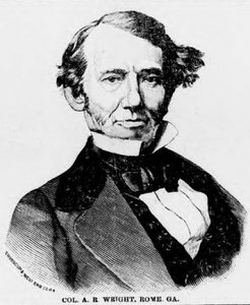 Georgia Statesman Augustus Wright Georgia Statesman Augustus Wright This failure is locking up the soil. That’s not an option we can accept. We cannot allow this to happen. It also seems that we cannot expect to change what goes on in Washington. The only option that leaves us is to start conversations on how to never be at the mercy of Washington. We have to be able to handle this at the state and local level. That requires us to develop sustainable systems of finance, energy, agricultural practices, and disaster relief that are completely independent of Washington. The answers will be local, local, and local. I don’t have answers and don’t claim to. I’m saying we gotta start talking about these answers among ourselves and with anyone in Atlanta who will listen. And we might have to talk a little louder to those in Atlanta who won’t listen. Washington is not the answer. We were fools to think it was. Our survival depends on a future with limited influence from Washington. If we don’t count on them, they can’t fail us. It’s time to count on us and to set the example for other states to do the same. Got any ideas? 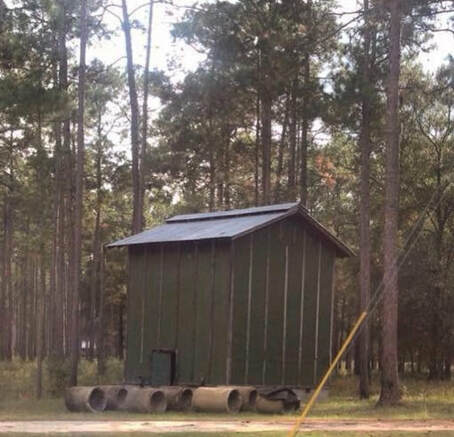 A South Georgia tobacco barn along the Bryan-Bulloch County line. (Photo credit, Teresa Wiser) A South Georgia tobacco barn along the Bryan-Bulloch County line. (Photo credit, Teresa Wiser) Sam Burnham, Curator @C_SamBurnham The first English settlers landed in the South, along the banks of Virginia’s James River in 1607. It would be 13 more years before the pilgrims would arrive at Plymouth. By that time, the Virginia colonists had discovered their cash crop. Tobacco. Long before Eli Whitney’s contraption crowned King Cotton, the South made its living with this plant. Tobacco became popular in Europe and colonial farmers planted it anywhere they thought it would grow. There are even tales of women growing it in their window boxes. Over the years this plant was used multiple ways as people smoked in pipes, cigars, and cigarettes. It was snorted as snuff. It was chewed or “dipped.” It became more than a cash crop. It became part of the culture. South Georgia farming consisted of cotton, turpentine, and tobacco. It’s hard to think of North Carolina without thinking of “Tobacco Road.” These days tobacco, in all its forms, is relegated to anathema. The Feds say it’s bad for you. Honestly, they’re right. It’s not a particularly healthy activity. And in their zeal to protect people from themselves, they have added exorbitant taxes, prohibited advertising, banned smoking in privately owned “public” places, and added all sorts of other regulations and restrictions. All of these incursions have run parallel to a gradual loosening of similar restrictions on liquor, which the Feds also say is bad for you. One conspiracy theory I find intriguing is that this is because you can make liquor up north but you can’t grow tobacco there. Ironically, liquor and tobacco naturally go together. A glass of bourbon is the perfect compliment to a nice cigar. That being said, we’ve discussed before how bootleggers gave us stock car racing, the premier series of which became The Winston Cup. Cars carried advertisements by various cigarette and smokeless tobacco companies. Of course beer companies got in on the act as well. Liquor was banned from advertising at that time, even though liquor gave us the sport. Times change and now liquor has a little more liberty but tobacco is out. Which is kinda funny considering the low number of tobacco related automobile accidents. And tobacco products have to carry a warning label that basically states “if you use this product, you’re going to die.” Well, no kidding. We’re all gonna die. You don’t have to look too deep into history to see 18, 19, 20 year olds who invaded occupied Europe or island hopped across the Pacific and SAVED THE WORLD, fueled in part by Chesterfields and Lucky Strikes. Douglas MacArthur was rarely photographed without the world’s largest corncob pipe clenched in his teeth. Winston Churchill is the namesake of the size of cigar he made famous. 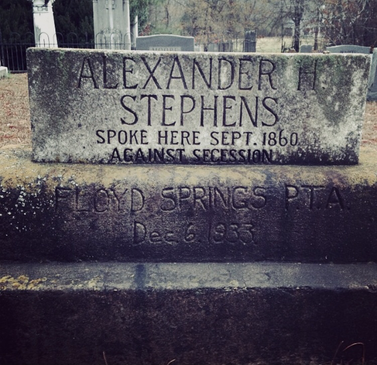 Dale Earnhardt's car in Victory Lane of a Winston Cup race, North Wilkesboro, North Carolina Dale Earnhardt's car in Victory Lane of a Winston Cup race, North Wilkesboro, North Carolina These were men of grit and determination, men who knew not the taste of avocado toast. They didn’t live in their parents’ basements. They came home and built things, started businesses, and became our grandfathers. I’ve seen tobacco related illnesses ravage people and seen them die prematurely. I’ve also seen it catch up with smokers and kill them dead at age 90. I’ve also seen avid runners and fitness practioners not live to see 50. I don’t say all this to tell anyone to smoke and I’m certainly not telling anyone to give up healthy habits. I’m saying this life is short, regardless. I’m saying the government’s onslaught against tobacco is ridiculous in a free country and hypocritical in regard to policies governing liquor, sugar, automobiles, processed food, and a thousand other things that cause cancer or other terminal illnesses. It’s time for some perspective. It’s time to chill out just a little. It’s time for free men and women to make up their own minds. No one gets out alive. |
Sam B.Historian, self-proclaimed gentleman, agrarian-at-heart, & curator extraordinaire Social MediaCategories
All
Archives
November 2022
|
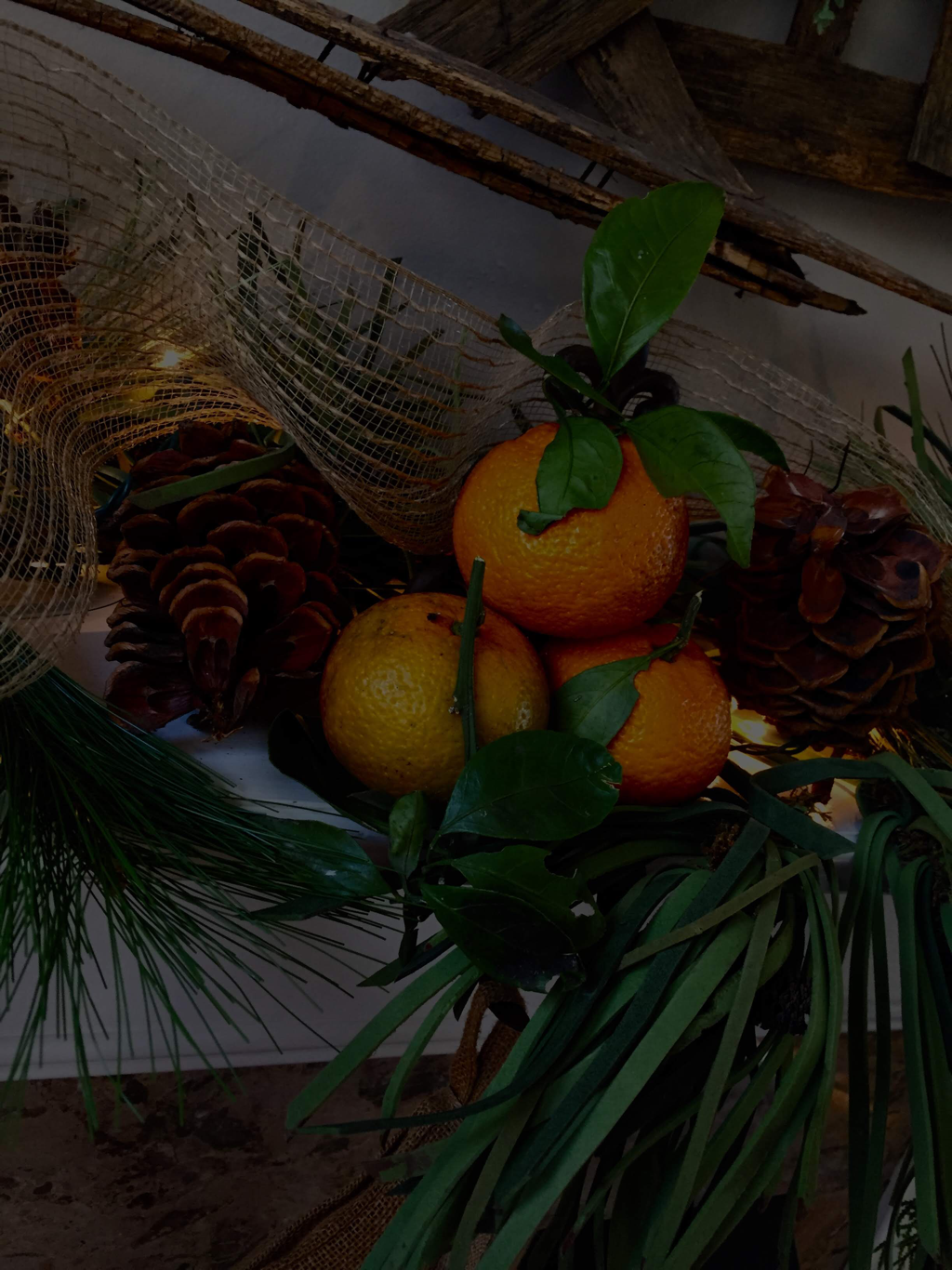
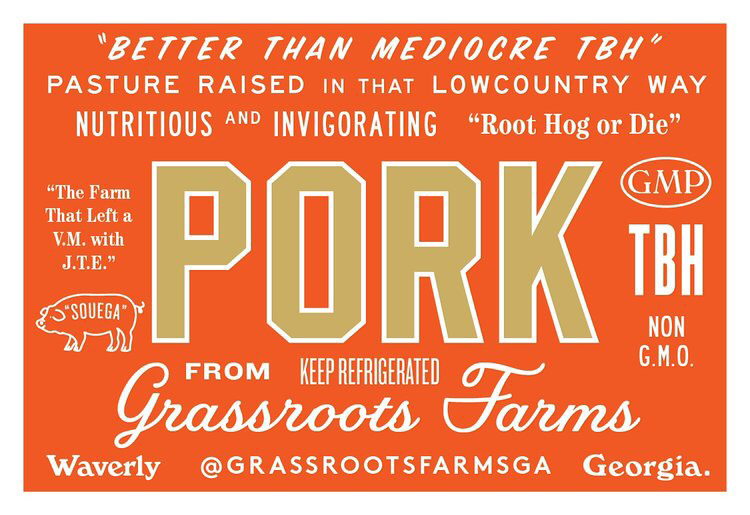
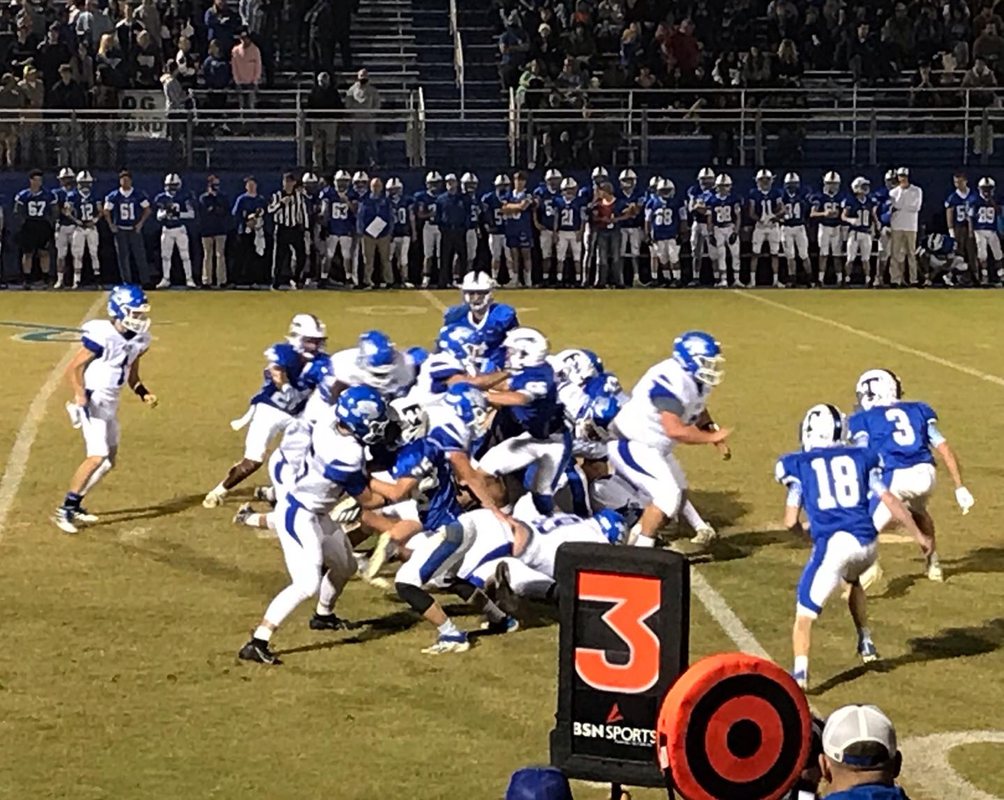
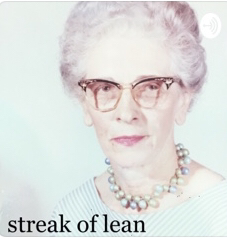




 RSS Feed
RSS Feed
